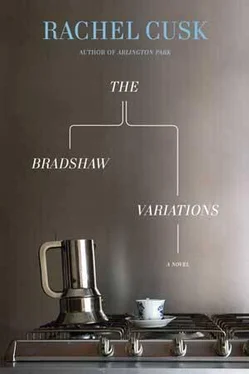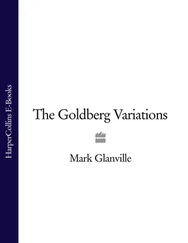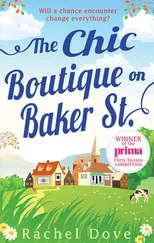‘Look — it’s the mother. See how unafraid she is. She’s looking for her child. She knows it’s here somewhere and she’s waiting for it to come back. Oh, how sad!’
The doe lifts her head. Her large almond-shaped eyes are pools of blackness. They wear a frightful expression. Flossie barks. For a while the doe doesn’t move, but at last she goes heavily back into the trees.
‘Oh, how touching.’ She unclips Flossie’s lead. Beside her Thomas gives a sort of gasp. She turns and sees to her astonishment that he is crying.
‘Whatever’s the matter?’ she says.
Something has changed. Or not changed: been lost. Tonie realises it with a jump, a start, the way she might feel around her throat for a necklace and realise it was no longer there.
They are walking with Alexa to Beacon Park, where there are swings, where they have taken her a hundred times since she was born, and not one of those times has Tonie felt that something was missing in the way that she feels it now. It is Saturday. Alexa is wearing new shoes, red, the leather plump and glossy and unmarked. Thomas bought them for her. They were very expensive. Tonie would never have bought Alexa such expensive shoes, beautiful Italian shoes with white kid insoles. She can’t decide whether it is the beauty or the expense that troubles her more.
The day is cold, bright, a diamond-hard February day, and Tonie walks ahead of the others on the pavement with her hands stuffed into her pockets. At the gate she stands silently back, to let them pass through. Alexa goes first, then Thomas. Tonie notices her daughter’s small, delicate shoulders as she passes, the head turning like a flower on the fragile neck, the dark, glossy ponytail tumbling down her back. She would like to touch it. Just then, Thomas puts his own hand out and touches the ponytail, fingering its ends. That’s when Tonie realises that something has been lost. She has lost his attention.
In the afternoon she decides to make spaghetti Bolognese. She gets out the saucepans, clanging and clattering. She fills the kitchen with the fumes of cooking onions and meat. She chops things and hurls them into the pot. She is frenzied, transfixed; she is engulfed in the preparation of this red sauce which bubbles, thick and volcanic, at her fingertips. She doesn’t know what will happen when the sauce is finished. She doesn’t know what she’ll do.
Occasionally Thomas comes into the kitchen, searches around, leaves again. Tonie, at her cauldron, brews up her red anger, her face damp with steam. She wants to scream, to throw things. Every time Thomas appears, blank-faced and diffident, searching for something, she has the desire to shock him with violence. She wants him to be brought into line. She wants him to be punished. For the first time, she wishes he were back at work. She wants him held and constricted, fenced round with regulations; she wants him corrected. Now he has the look of someone who has got away with something. He can withdraw his attention, with no fear of reprisal.
‘What are you actually looking for?’ she says coldly, when he has come in for the third or fourth time.
‘What?’ He looks up, notices her. ‘Oh, nothing.’
When she goes upstairs she finds Thomas and Alexa, all quiet and companionable, in the sitting room. She stands in the doorway but neither of them looks up. She doesn’t go back to her red sauce, which is still bubbling on the cooker. She leaves it, abandons it, goes to her bedroom. She lies on the bed. Later, Thomas puts his head in.
‘I think your sauce is done,’ he says. ‘Shall I turn it off?’
‘If you want,’ Tonie says.
He goes away again. The house is full of the red rich smell of what she has created. The room is getting dark. She can hear music playing downstairs. She lies still. She doesn’t turn on the lights.
Claudia suggests giving Lottie an allowance. Now that Lottie is fourteen, Claudia says, she should have some money of her own. She says this to Howard, who is a little remote and businesslike, as though he were being informed of some minor by-law that is about to come into force. He stands there in his suit and goes through the post.
‘She ought to open a bank account,’ he says. ‘We should open bank accounts for all of them.’
Claudia looks astonished.
‘Why does Martha need a bank account? She’s only six.’
‘Everyone should have a bank account.’
‘What, a six-year-old child should have a chequebook and pay bank charges, and get letters pouring through the door about personal loans!’
Howard opens an envelope and reads what is inside. Claudia watches his eyes moving from left to right. When he has finished he says,
‘I’m only saying that if Lottie’s going to have an allowance we should pay the money into a bank account.’
Claudia is silent: she wants to give the impression that she is thinking this proposal through. It isn’t that Howard is wrong exactly. It is that the idea of opening a bank account takes away what is pleasurable in the prospect of giving Lottie money.
‘It’s too complicated,’ she says, after a while. ‘All Lottie actually needs is some spending money of her own.’
‘It’s not as complicated as all that,’ Howard says.
‘I think it’s too soon. She’s too young.’
‘It’s the easiest thing in the world, Claude. Then she can begin to save.’
‘What does she need to save for?’
‘All of them should learn to save,’ Howard says sententiously.
Claudia feels that Howard is missing the point. What she wants to know is how much he thinks they should give her. That is what she imagined them discussing. She has already decided that Lottie’s allowance should be twenty-five pounds a month.
‘What do you think we should start her on?’ she says.
Howard muses, considering the ceiling.
‘Fifty?’ he says.
‘A month? You must be joking.’
‘Too little?’
‘Too much — I thought twenty-five.’
Howard seems surprised. He is wearing his reading glasses and he looks at her over the top of them.
‘She won’t get far on twenty-five pounds,’ he says. ‘That’s only six or seven pounds a week, Claude. Hardly enough for a stick of gum.’
‘It’s plenty for a fourteen-year-old girl.’
Claudia doesn’t remember anyone ever giving her money, though they presumably did.
‘And that’s to cover clothes too? Shoes?’
Claudia reconsiders. ‘All right, thirty. And I’ll buy her shoes.’
Claudia informs Lottie that, effective from the first day of the coming month, she is to receive a regular personal allowance of thirty pounds.
‘Okay then,’ Lottie says.
‘Not “okay then”,’ Claudia corrects her. ‘“Okay then” is for when I ask you to do something for me .’ Lottie looks at her dumbly. ‘It isn’t for when I offer to give you something.’
Lottie is silent. Claudia says,
‘I’ll still pay for your shoes, and anything you need for school.’
‘Oka — all right.’
‘Your allowance is for you to do what you want with. It’s your money. If you want to save it, you can. If you blow the whole lot in the first week, then you’ll have to manage till the end of the month without any more.’
‘I know,’ Lottie says.
‘There’s no point coming to me halfway through the month and saying you haven’t got any money. The purpose of the exercise is to teach you how to budget.’
‘I know.’ Lottie looks bored.
‘You’re obviously an expert,’ Claudia says. She recalls that she expected to enjoy this conversation. When she thought about it earlier in the day, it was with a warm feeling of pressure in her chest, as though there were something in there, something waiting to be lifted out and given, like a bouquet of flowers.
Читать дальше












